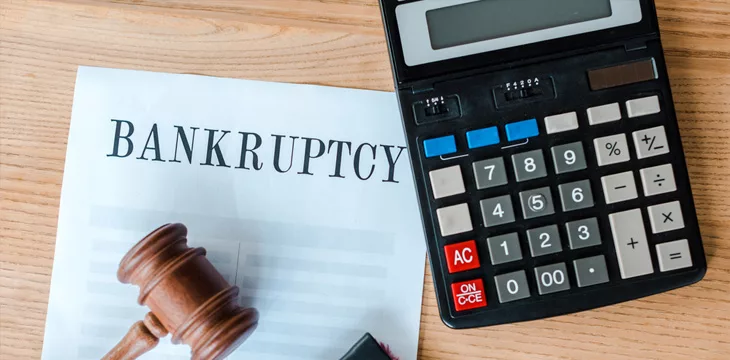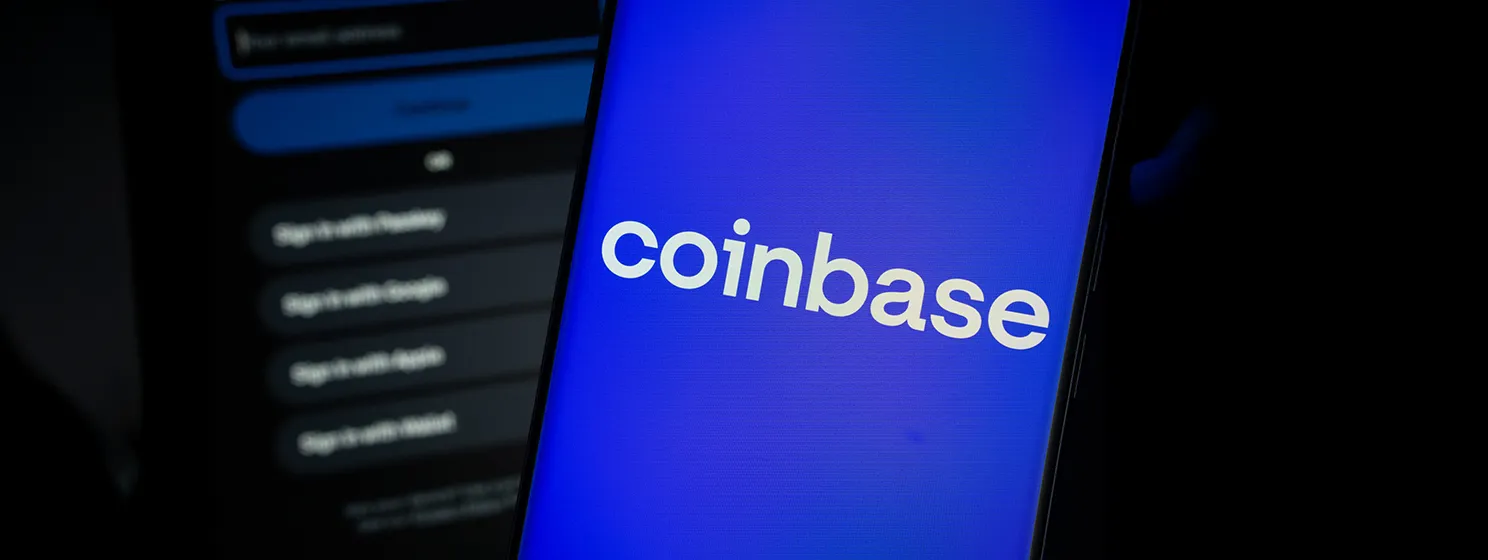|
Getting your Trinity Audio player ready...
|
The bankruptcy of a Prime Trust subsidiary is yet another indication that ‘crypto winter’ is a long, long way from thawing.
On Tuesday, Nevada-based crypto-friendly payment processor Banq Inc filed for Chapter 11 bankruptcy protection, citing the “unauthorized” transfers of $17.5 million worth of assets to non-fungible token (NFT) projects set up by a trio of former Banq executives, including its founder and former CEO Scott Purcell.
In May 2022, Banq filed a civil suit in federal court against its former execs for having stolen its technology and “significant other value of Banq’s” and used the ill-gotten gains to launch Fortress NFT and Planet NFT. Banq accused the execs of violating non-disclosure agreements and the Nevada Uniform Trade Secrets Act.
Banq claimed that in May 2021, then-CEO Purcell abruptly informed Banq shareholders that he was “suspending all sales and marketing efforts … just as [Banq] was beginning to generate revenue.” Purcell said he’d decided to ‘redirect’ Banq’s focus toward NFT wallet technology. In July 2021, Purcell had Banq take out a $3 million loan from Delaware-registered N9 Advisors LLC to further this reorientation.
In December 2021, Purcell “unilaterally” announced his decision to “wind down the majority” of Banq’s operations. Purcell resigned from Banq four days later, with CTO/CPO Kevin Lehtiniitty (not a typo) and general counsel George Georgiades following Purcell out the door.
In January 2022, Banq’s acting CEO discovered that the three former execs had launched Fortress NFT the previous September. Purcell & Co also “secretly and unlawfully transferred the vast majority of [Banq’s] employees, trade secrets, intellectual property, technology, business opportunities and equipment.”
As a result, Banq says it was forced to suspend its day-to-day operations. Banq’s attempts to go on with the show were further hampered by a Florida court action filed by N9 Advisors, which Banq claims is not only its largest creditor but also “a substantial investor in Fortress.”
Banq’s Chapter 11 filing lists around $18 million worth of assets, nearly all of which consists of the allegedly stolen property. Notable creditors include LV Stadium Events Company, aka the home of the NFL’s Las Vegas Raiders. Banq owes LV over $788,000 for personal seat licenses for Raiders’ games, which Purcell allegedly “transferred … to himself” on his way out the door.
Banq alleged that its former execs deleted electronic files in a bid to mask their crimes and pass off the purloined assets as their own. In January, the parties were compelled to enter into arbitration in an effort to resolve their differences.
Gratuitous sexual innuendo
Until March 2021, Purcell was also CEO of Banq’s parent company Prime Trust, which Purcell founded in 2016. Purcell’s replacement as Banq’s CEO was Joshua Sroge, who previously served as CFO for the Binance.US exchange.
Sroge also briefly served as interim CEO of Binance.US following the mid-2021 departure of Brian Brooks, who, after three months on the job, realized that he was only there as an authority-free sock puppet for Binance boss Changpeng ‘CZ’ Zhao.
You’d be forgiven for thinking the ‘crypto’ executive talent pool is one big incestuous executive circle-jerk. Speaking of, you won’t find it on his LinkedIn, but Purcell also founded the adult entertainment company Kasidie, which operates a members-only website for the ‘swingers’ community. (Not sure if they take crypto.)
This got us thinking; maybe there’s some top-secret Kasidie sub-group whose swinging members are all crypto VIPs. You know, like the FTX/Alameda polycule, only not confined to one company or protocol. “Hey, anybody seen Saylor?” “Yeah, Paolo said he saw him on all fours on the terrace getting pegged by Cathie, muttering ‘there is no second best.’”
Prime mistrust
Getting back to Banq’s bankruptcy, this is just the latest blow to befall Prime Trust, which last week indicated that it had reached a non-binding agreement to be acquired by rival crypto custodian/wallet service provider BitGo. It’s unclear how Banq’s bankruptcy might impact BitGo’s acquisition of Prime Trust, the terms of which weren’t disclosed.
This year hasn’t been kind to Prime Trust, which laid off one-third of its staff in February. The previous month, it did a runner from Texas after being fined for conducting money transmission activities in the state without a license.
Last year wasn’t much better. In April 2022, Prime Trust was revealed to have acted as a conduit for $14 million in political donations by Sam Bankman-Fried and his former FTX lieutenant Nishad Singh. In November, Prime Trust’s former CEO, Tom Pageler, was unceremoniously ousted in the wake of FTX’s scandalous collapse.
More recently, Prime Trust served as a fallback option for Binance.US’s custodial needs following this spring’s collapse of the crypto-friendly Silvergate and Signature banks, a trajectory that no other U.S. financial institution seemed all that eager to emulate.
Last week’s U.S. Securities and Exchange Commission (SEC) civil lawsuit against Binance—and the SEC’s bid to temporarily freeze all Binance.US assets, including those held with Prime Trust—didn’t help matters.
This reportedly contributed to a ‘crypto bank run’ on Prime Trust, as customers looked to retain personal control over their assets before the feds put them on ice (or CZ proactively withdrew them for ‘safeguarding’).
Shortly before its BitGo deal was announced, Prime Trust was reportedly scrambling to find investors willing to provide as much as $25 million to stabilize its financial situation. And yet BitGo Mike Belshe said last week that he wouldn’t be doing the deal had Prime Trust’s balance sheet presented “an insurmountable problem.” Time will tell.
FalseUSD
Around the time of BitGo’s acquisition announcement, the mysterious entities (okay, Justin Sun) behind the TrueUSD (TUSD) stablecoin announced that new TUSD mints via Prime Trust “are paused for further notification.” The announcement tried to pacify users by saying users’ “ability to mint and redeem TUSD tokens will not be impacted by these changes.”
But shortly thereafter, several users began publicly complaining that TUSD withdrawal requests were either being slow-rolled or ignored. This isn’t really surprising, considering that Prime Trust was one of TUSD’s only U.S. fiat rails.
The hiccup was sufficiently worrying that TUSD lost its 1:1 peg with the U.S. dollar for a few days. While it ultimately recovered, it has repeatedly slipped its peg for brief periods in recent days, including on Wednesday (14), although not to the depths it sunk in late April.
Haru divest
The ripple effect of Banq/Prime Trust’s issues was initially suspected of contributing to this week’s withdrawal freeze at South Korean digital asset custodian/yield service Haru Invest.
On Tuesday, Haru Invest issued a statement saying, “Certain information provided by a consignment operator was suspected to be false … We are currently engaging in a fact-finding process against the operator in question and plan to take necessary measures.”
Given the timing of Haru Invest’s announcement, speculation mounted that either Prime Trust or Banq had provided services to the Korean company, which offered exceedingly generous rates of return for customers willing to lend it their digital assets. Haru Invest has around US$1 billion in assets under management.
However, Haru Invest issued an update on Wednesday, saying it “filed a criminal complaint against B&S Holdings today and are planning to file civil action as well.” B&S, formerly known as Aventus, was one of Haru Invest’s “consignment operators” but allegedly “provided management reports containing false information.”
While Prime Trust may have dodged a reputational bullet on that one, we should point out that another Fortress-branded company that Purcell founded after allegedly sandbagging Banq was Fortress Trust, yet another digital asset custodian. Some of Prime Trust’s former clients, including Cory Klippsten’s Swan Bitcoin, have since shifted their customers’ assets to Fortress Trust.
Forgive us for saying so, but at this point, anyone keeping their digital assets anywhere but a personal cold wallet—preferably one offering a digital asset recovery option—is basically asking for trouble. But perhaps it’s better to ask why individuals see no other use for their digital assets than lending them to someone else with the expectation that some mystical wizardry will generate large profits.
Perhaps it’s because the blockchains on which these digital assets reside lack the technical capacity to perform any useful function beyond speculation. Perhaps it’s time to reconnect with the utility that only a truly scalable blockchain can provide. And perhaps you better hurry because the current fiasco is unsustainable.
Watch: Rise of digital currencies in banking discussed, Dr. Vogel

 05-11-2025
05-11-2025 





